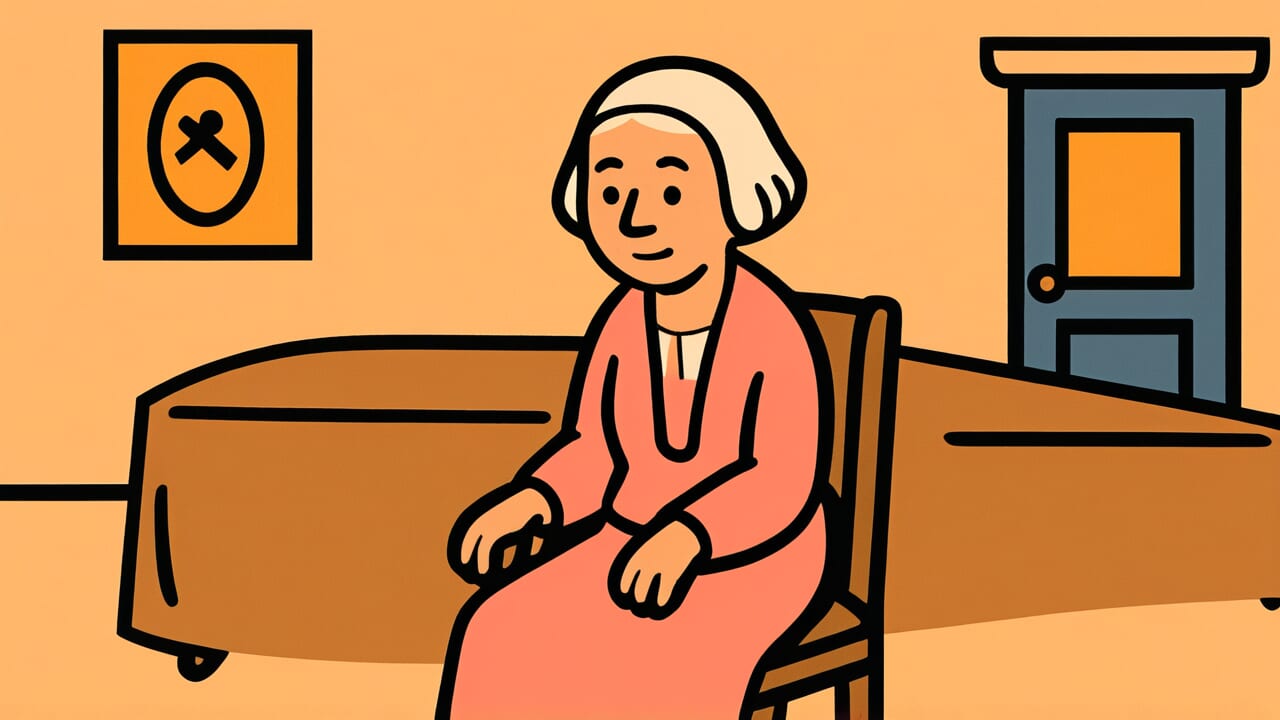How to Read “A child raised without scolding is grandmother-raised”
Ai tatenai wa sobo sodachi
Meaning of “A child raised without scolding is grandmother-raised”
This proverb means that children raised by their grandmothers often become spoiled. Grandmothers tend to give too much love without teaching discipline. This can hurt how a child’s personality develops.
Grandmothers usually give unlimited love to their grandchildren. They say yes to everything the kids want. As a result, children never learn to wait or control themselves.
These kids think they should always get what they want. When parents try to scold them, grandmothers often protect the children. This means kids miss chances to learn right from wrong.
People use this proverb to show that raising children needs both love and strictness. It’s especially used to warn grandparents not to spoil their grandchildren too much.
Today, many families still have grandparents helping with childcare. So this proverb’s lesson still matters in modern times.
Origin and Etymology
We don’t know exactly when this proverb first appeared in writing. But we can learn a lot from looking at the words themselves.
“Ai tatenai” means “not showing strict love” or “not being firm.” In the Edo period, parents were expected to be somewhat strict with their children.
Grandmothers were different. They didn’t have direct responsibility for raising kids. So they could show pure love without needing to discipline.
Back then, three generations often lived together in one house. Grandmothers spent a lot of time taking care of grandchildren. While parents were busy with work, grandmothers watched the kids.
But grandmothers found it hard to be strict. Their grandchildren were so precious to them. They couldn’t bring themselves to scold them harshly.
This proverb came from watching these family patterns. People noticed how different generations played different roles. They saw how this affected children’s personalities.
The lesson is clear: love alone isn’t enough to raise children well. Sometimes you need to be strict too.
Usage Examples
- The neighbor’s child stays with his grandmother a lot. I’m a bit worried because “a child raised without scolding is grandmother-raised.”
- I know you love your grandchild, but remember “a child raised without scolding is grandmother-raised.” Sometimes you need to be strict too.
Universal Wisdom
This proverb has been passed down because it shows a deep truth about love. Loving someone and being strict with them don’t contradict each other.
It’s natural for grandmothers to spoil their grandchildren. They don’t have the main responsibility for raising them. So they can show pure love without worrying about discipline.
But this proverb teaches us that love alone isn’t enough. Children need more than just affection to grow up healthy and strong.
Everyone wants to be loved. But we also need challenges and limits to grow. Children must learn patience and how to think about others.
They need to develop skills to live in society. To do this, they must sometimes hear the word “no.” A grandmother’s kindness gives comfort. But it doesn’t provide everything needed for character development.
This proverb shows us what true love really means. Real love isn’t just being nice all the time. It means thinking about someone’s future and being strict when necessary.
Raising a person requires a careful balance between love and rules. Our ancestors understood this difficulty. That’s why they passed this wisdom down through generations.
When AI Hears This
When grandparents raise grandchildren, different chemical reactions happen in their brains compared to parents. When parents hold babies, they release lots of oxytocin, the love hormone.
But research shows grandparents release about 30 percent less. The biological “love circuit” gets weaker when there’s a generation gap.
Interestingly, this emotional distance can actually help with calm judgment. When children cry, parents’ amygdala (the emotion center) reacts very strongly. This can lead to overprotection or emotional scolding.
Grandparents’ brains react more calmly. Their prefrontal cortex (the reasoning part) works more actively. In other words, their love intensity is lower, but they can respond more steadily.
Here’s the problem: children need “emotional resonance” to form healthy attachments. When parents respond sensitively to children’s emotions, kids learn to understand and control their own feelings.
Grandparents’ calmness creates a safe environment. But less emotional back-and-forth means children may struggle to express their feelings in words.
So this proverb isn’t about the “amount” of love. It’s about different “transmission circuits.” The generation filter brings stability. But it also reduces opportunities for emotional learning. It’s a double-edged sword.
Lessons for Today
This proverb teaches us that there are many ways to show love. Kindness isn’t the only form of love. Sometimes strictness is also a form of caring.
In modern society, many adults spoil children. They don’t want kids to dislike them or feel hurt. But if you truly care about a child’s future, you should focus on building life skills.
This matters more than just keeping them happy right now.
If you’re a parent or work with children, think about balancing love and rules. Saying “no” doesn’t mean you lack love. Actually, you can be strict because you believe in their growth.
If you feel you were spoiled growing up, recognizing this is the first step to growth. Even as an adult, you can still develop self-control.
This proverb isn’t just about raising children. It also gives hints about raising yourself. What does true kindness really mean? Think about it with this proverb in mind.



Comments